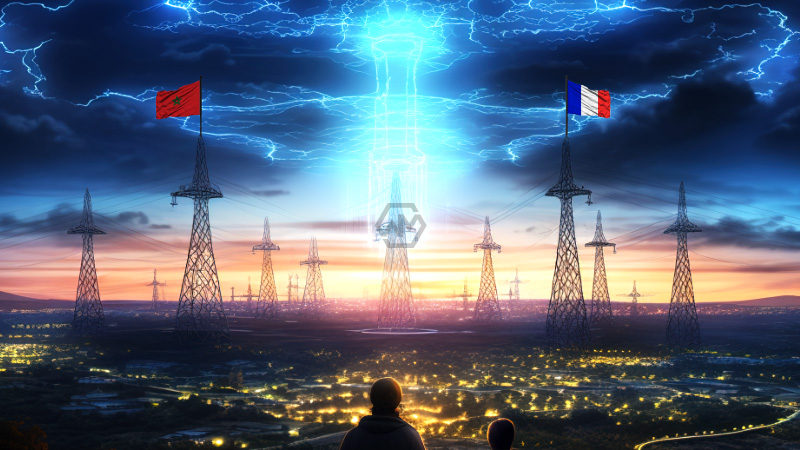- Morocco and France advance work on a strategic cross-continental power link.
- The project supports energy security, renewable energy, and hydrogen production.
- Institutional cooperation and data exchange mechanisms are crucial for success.
The Morocco-France power link project marks a significant step toward deeper energy integration between the two nations. By facilitating electricity exchange and reinforcing grid stability, the project aligns with both countries’ goals for a more resilient and sustainable energy future.
Beyond the immediate benefits of electricity transmission, the initiative expands the scope of energy cooperation to include renewable energy production, hydrogen development, and energy storage.
Morocco-France Energy Partnership: A Cross-Continental Breakthrough
The Morocco-France power link project represents a milestone in regional energy connectivity, reinforcing both nations’ commitments to energy security and sustainability. This high-voltage power corridor will enhance electricity exchange and ensure a stable, efficient energy flow between Africa and Europe.
A key focus of the project is the development of renewable energy sources, including solar, wind, and low-carbon hydrogen. Morocco’s ambitious renewable energy strategy, combined with France’s technological expertise, creates a strong foundation for innovation in green energy solutions.
Institutional collaboration plays a critical role in the project’s success. Transparent data exchange, regulatory alignment, and streamlined policy frameworks are essential to ensuring smooth implementation and long-term efficiency. Stakeholders from both nations are actively working to strengthen these aspects.
Beyond electricity transmission, the partnership sets the stage for expanded cooperation in energy storage and decarbonization efforts. As global energy transition accelerates, projects like this highlight the importance of cross-border initiatives in building a sustainable and interconnected energy future.
The Morocco-France power link project exemplifies the growing importance of international cooperation in energy transition, setting a strong precedent for future global partnerships in clean energy.
“The future of energy lies in connectivity and cooperation, where nations work together to build a more resilient and sustainable world.”



